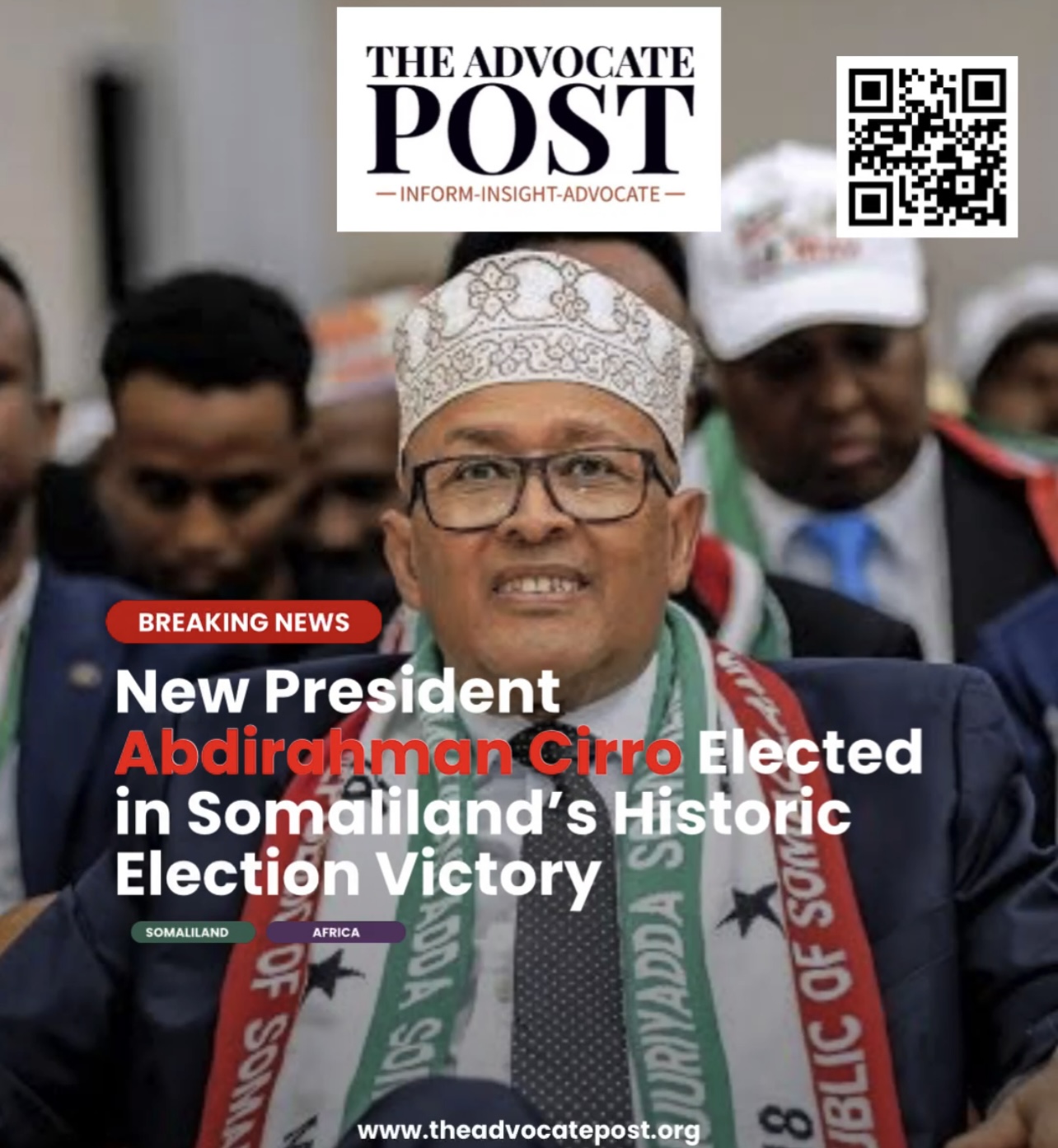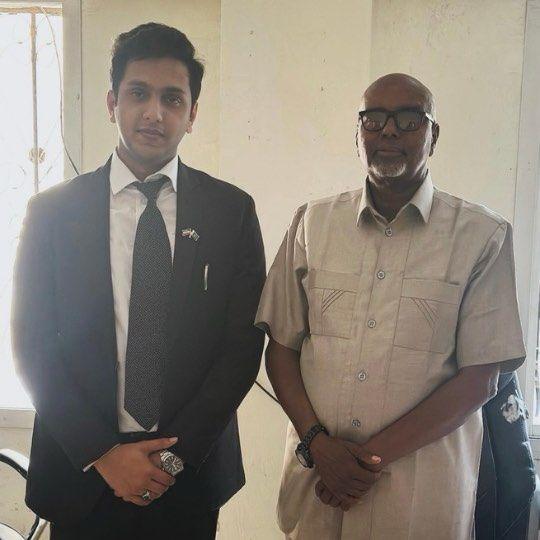News Desk
Hargeisa: In a momentous shift for the region, Abdirahman Cirro, leader of the opposition Waddani party, has won Somaliland’s presidential election with a decisive 64 percent of the vote, signaling a new chapter in the country’s quest for stability and international recognition. The peaceful conduct of the election, the fourth in Somaliland’s history, has once again highlighted the nation’s commitment to democratic principles and the peaceful transfer of power, offering a hopeful example for the world.
The election, held last week, saw incumbent President Muse Bihi Abdi, who was seeking a second term, secure 35 percent of the vote. Both candidates campaigned on promises of strengthening Somaliland’s democratic institutions, fostering economic growth, and pursuing the long-awaited international recognition the region has yearned for since its declaration of independence from Somalia over three decades ago.
As the results are confirmed, Somaliland stands as a beacon of democratic governance in a region plagued by instability. Unlike its troubled neighbor Somalia, which continues to face security challenges, Somaliland has managed to sustain a stable political environment, building its own government, currency, and security structures. Despite being unrecognized by the international community, Somaliland’s success in governance and peacebuilding has made it a model of what is possible in a volatile region.
The peaceful nature of the election process, marked by a relatively low incidence of violence and widespread participation, stands in stark contrast to many elections elsewhere on the continent and in the Horn of Africa. This is a testament to the political maturity of Somaliland’s electorate and its leadership. As Cirro prepares to assume office, the international community is watching closely, with hopes that this peaceful transition will further solidify the region’s stability and democratic credentials.
The election also took place amidst rising tensions with Mogadishu over a controversial deal granting Ethiopia access to Somaliland’s ports, fueling regional debate over sovereignty and political recognition. However, despite the geopolitical complexities, the peaceful elections offer hope that Somaliland can continue to navigate these challenges with diplomatic finesse and maintain its focus on internal development.
For Somaliland’s citizens, this victory represents more than just a political win; it is a statement of hope for a future where peace and prosperity are the guiding principles. The region’s democratic success and its resilience in the face of adversity position it as a potential role model for other nations struggling with political and security instability.
As Abdirahman Cirro prepares to lead, the world watches with optimism. Somaliland’s peaceful election and transfer of power are not just a triumph for the nation but a testament to the potential for positive change in a world where democracy and stability are often hard-won. With its commitment to democracy and its quest for international recognition, Somaliland may one day take its place as a fully recognized sovereign state, fulfilling the aspirations of its people and serving as a symbol of hope for the future of nations striving for peace and stability.






This Post Has One Comment
Mashallah I’m so proud of my nation #SomalilandTheyIndeedConductedHistorica l#Election2024
They elected the sixth president Mr. Abdulrahman, Mohammed Abdullahi he will be the sixth president of Somaliland since it reclaimed. It is sovereignty from Somalia in 1991. Historic victory SL is best kept secret East Africa, and of African nations should really learn how to be democratic from Somaliland . They have mastered it in the last three decades . I congratulate Landers who conducted themselves with utmost respect and dignity while they exercise their rights to vote person vote.🗳️ 🎉🎈❤️